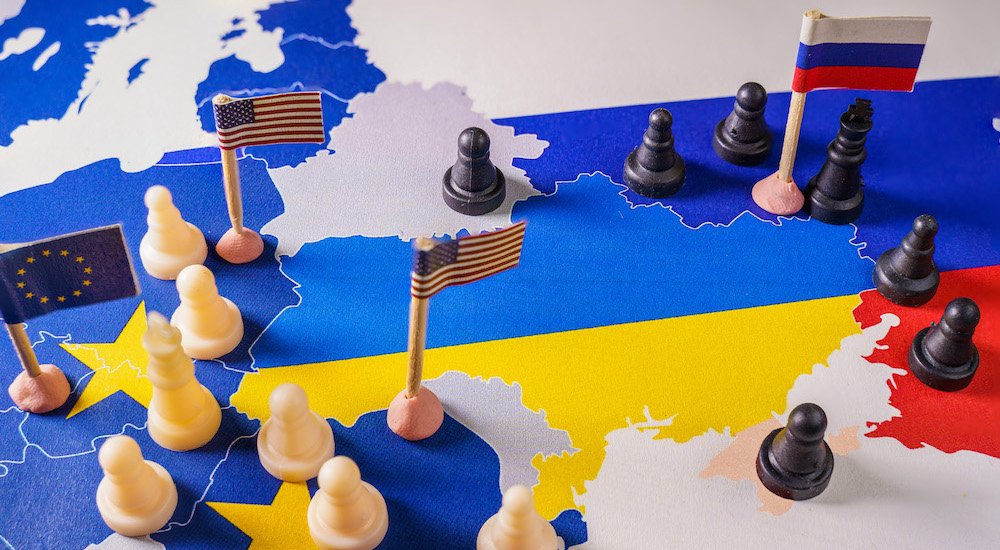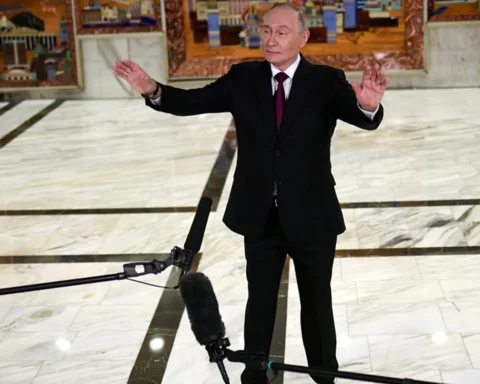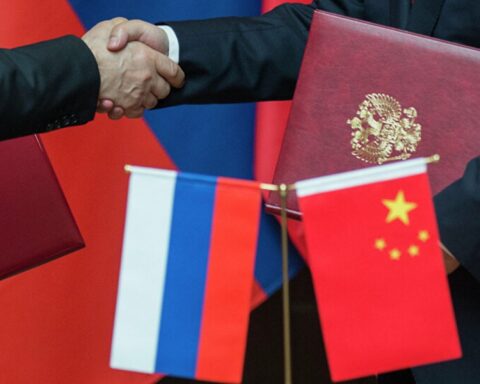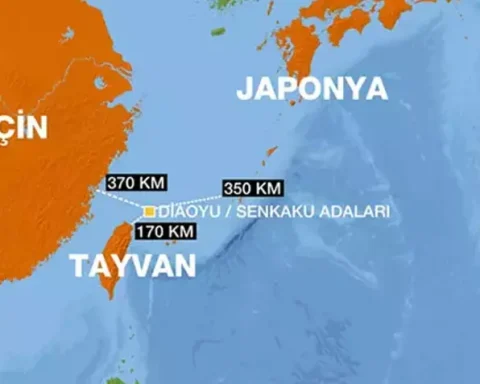Key Points and Summary – Western aspirations for regime change in Russia are a “dangerous delusion” that ignores the lessons of past interventions in Iraq and Libya.
-Such efforts are not only unrealistic, given Russia’s nationalist resilience, but also risk provoking greater instability and a more aggressive Kremlin.
-Instead of pursuing this flawed strategy, the West must adopt a pragmatic and robust deterrence model.
-This approach should combine credible military readiness, targeted economic sanctions, and persistent diplomatic engagement to effectively counter Russian aggression while acknowledging the reality of its political landscape.
Why ‘Regime Change’ in Russia Is a Dangerous Fantasy
This is the only sustainable path to managing the threat from Moscow.
In the intricate and often tumultuous landscape of international relations, the West finds itself at a critical juncture regarding its strategy toward Russia. The allure of regime change has long captivated Western leaders, promising a swift resolution to the myriad challenges posed by the Kremlin. However, the harsh reality is that such aspirations are not only unrealistic but also fraught with perilous consequences. As we navigate the geopolitical landscape in 2025, Western powers must adopt a realist deterrence strategy, abandoning the delusion of inducing regime change in Russia.
Historically, attempts at regime change have often led to unintended and deleterious consequences. The U.S. interventions in Iraq and Libya serve as stark reminders of the chaos that can ensue when external powers attempt to reshape a nation’s political landscape. In Iraq, the removal of Saddam Hussein did not usher in a new era of democracy; instead, it plunged the country into sectarian violence and instability that persists to this day. Similarly, Libya, once a relatively stable state, descended into a failed state scenario following the ousting of Muammar Gaddafi. These examples underscore the inherent risks of regime change, particularly in nations with complex social and political fabrics.
The notion that the West can effectively engineer a change in the Russian regime is equally misguided. Russia’s political landscape is characterized by a strong sense of nationalism and a populace that, despite grievances, often rallies around its leadership in times of external threat. The Kremlin has adeptly framed its narrative, portraying the West as an existential adversary. This narrative not only consolidates domestic support for the regime but also complicates any external efforts aimed at fostering dissent or promoting alternative governance structures.
Moreover, the consequences of regime change efforts extend beyond the immediate chaos they create. They can lead to long-term strategic instability, emboldening adversaries and undermining the credibility of Western powers. The perception that the West seeks to impose its will on sovereign nations can foster resentment and resistance, driving countries like Russia to adopt more aggressive postures. This dynamic has been evident in the Kremlin’s response to Western interventions, which it interprets as direct threats to its sovereignty and security.
In light of these historical lessons, it is crucial for Western leaders to recalibrate their approach to Russia. The focus should shift from the unrealistic goal of regime change to a robust deterrence strategy that acknowledges the realities of the current geopolitical landscape. This strategy should be grounded in a clear understanding of Russia’s motivations and the broader implications of its actions.
Deterrence, in this context, involves a multifaceted approach that combines military readiness, economic sanctions, and diplomatic engagement. The West must demonstrate a credible commitment to defending its interests and allies while simultaneously seeking to engage with Russia on issues of mutual concern. This dual approach can help to stabilize the region and reduce the likelihood of miscalculations that could lead to conflict.
Military readiness is paramount in this deterrence strategy. The West must ensure that its forces are adequately positioned and prepared to respond to any aggressive actions by Russia. This includes bolstering NATO’s eastern front and enhancing the capabilities of member states in the region. A visible and credible military presence can serve as a powerful deterrent, signaling to Moscow that aggression will not be tolerated. The recent military exercises conducted by NATO in Eastern Europe exemplify this commitment to deterrence, showcasing the alliance’s resolve to protect its member states.
Economic sanctions also play a critical role in a realist deterrence strategy. Targeted sanctions can impose significant costs on the Russian economy, thereby limiting its ability to project power abroad. However, these sanctions must be carefully calibrated to avoid unintended consequences that could further entrench the regime. The goal should be to weaken the Kremlin’s capacity for aggression while minimizing the impact on the Russian populace, who often bear the brunt of such measures. Sanctions should be coupled with clear communication about their purpose: to deter aggressive actions rather than to punish the Russian people.
Diplomatic engagement should not be overlooked in this strategy. While the West must remain firm in its stance against Russian aggression, there are opportunities for dialogue on issues such as arms control, cybersecurity, and regional stability. Engaging with Russia on these fronts can build a framework for coexistence, reducing the risk of escalation and fostering a more stable international environment. The recent discussions surrounding arms control treaties, for instance, highlight the potential for cooperation even amidst tensions.
It is also essential to recognize that the pursuit of regime change can distract from the more pressing challenges posed by Russia’s actions on the global stage. The Kremlin’s interference in democratic processes, its military interventions, and its aggressive posture toward neighboring countries are issues that demand immediate attention. By focusing on deterrence, the West can more effectively address these challenges without becoming mired in the quagmire of regime change.
In this context, it is worth noting that some Western leaders continue to advocate for regime change in Russia, believing it to be a viable solution to the current crisis. Figures like British Prime Minister Rishi Sunak have occasionally hinted at the need for a change in the Kremlin, reflecting a sentiment that can be both appealing and dangerous. However, such views are increasingly out of step with the realities of international relations. The lessons of the past should serve as a cautionary tale, reminding us that the path to stability lies not in the overthrow of regimes but in establishing a framework for deterrence and engagement.
As we move forward, Western powers need to embrace a realist perspective that prioritizes stability and security over the unattainable goal of regime change. This approach not only acknowledges the complexities of the Russian political landscape but also recognizes the broader implications of our actions on the global stage. By adopting a deterrence strategy, the West can effectively counter Russian aggression while fostering an environment conducive to dialogue and cooperation.
In conclusion, the time has come for Western powers to abandon the delusion of regime change in Russia and embrace a pragmatic approach grounded in realism. The historical consequences of past interventions serve as a stark reminder of the risks involved in attempting to reshape foreign regimes. By focusing on deterrence, the West can safeguard its interests, promote stability, and navigate the challenges posed by Russia in a manner that is both effective and sustainable. The path forward lies not in the pursuit of unattainable ideals but in the recognition of the complex realities that define our world.
Ultimately, the West must recognize that a strategy of deterrence is not merely a defensive posture; it is a proactive approach that seeks to shape the environment in which we operate. By demonstrating resolve and a willingness to engage, the West can create a framework that discourages aggression while opening avenues for cooperation. In doing so, we can foster a more stable and secure international order —one that acknowledges the realities of power dynamics while striving for peaceful coexistence.
The stakes are high, and the choices we make today will resonate for generations to come.
Dr. Andrew Lathamnis a non-resident fellow at Defense Priorities and a professor of international relations and political theory at Macalester College in Saint Paul, MN. You can follow him on X: @aakatham.
Source: https://nationalsecurityjournal.org/the-fall-of-putin-the-wests-great-russia-regime-change-dream/






